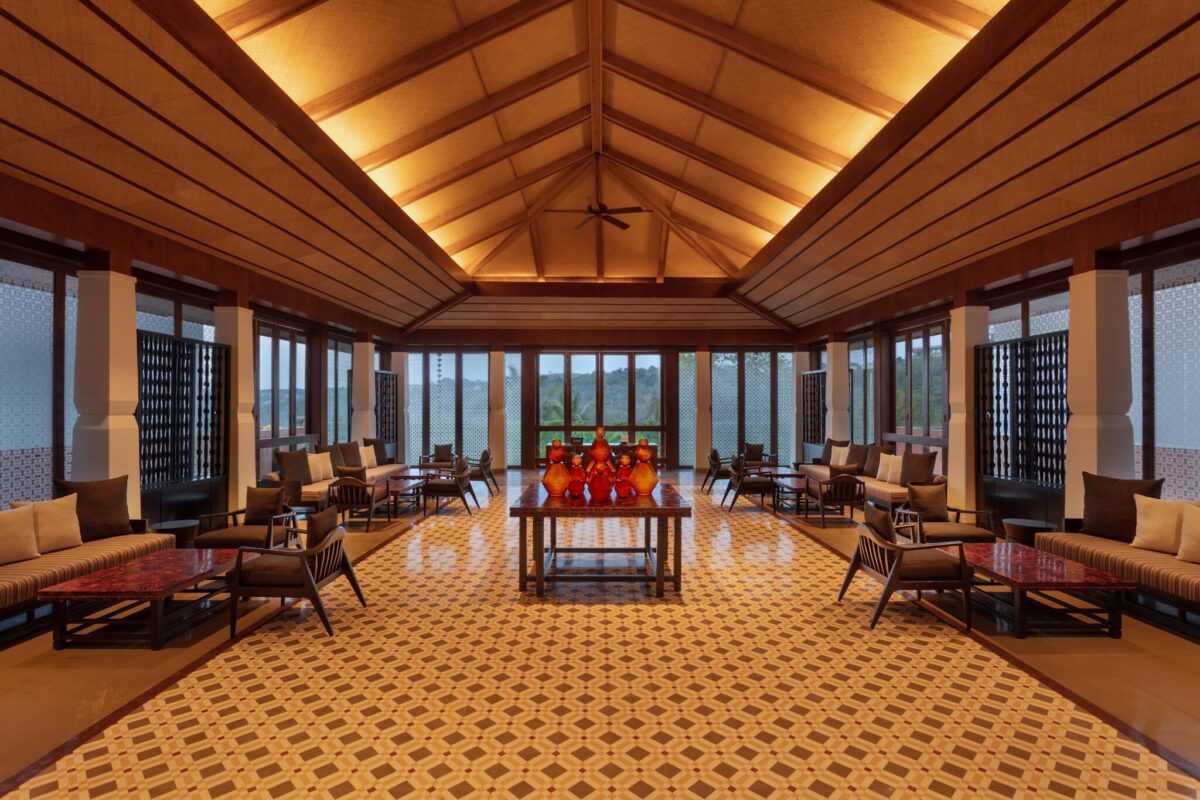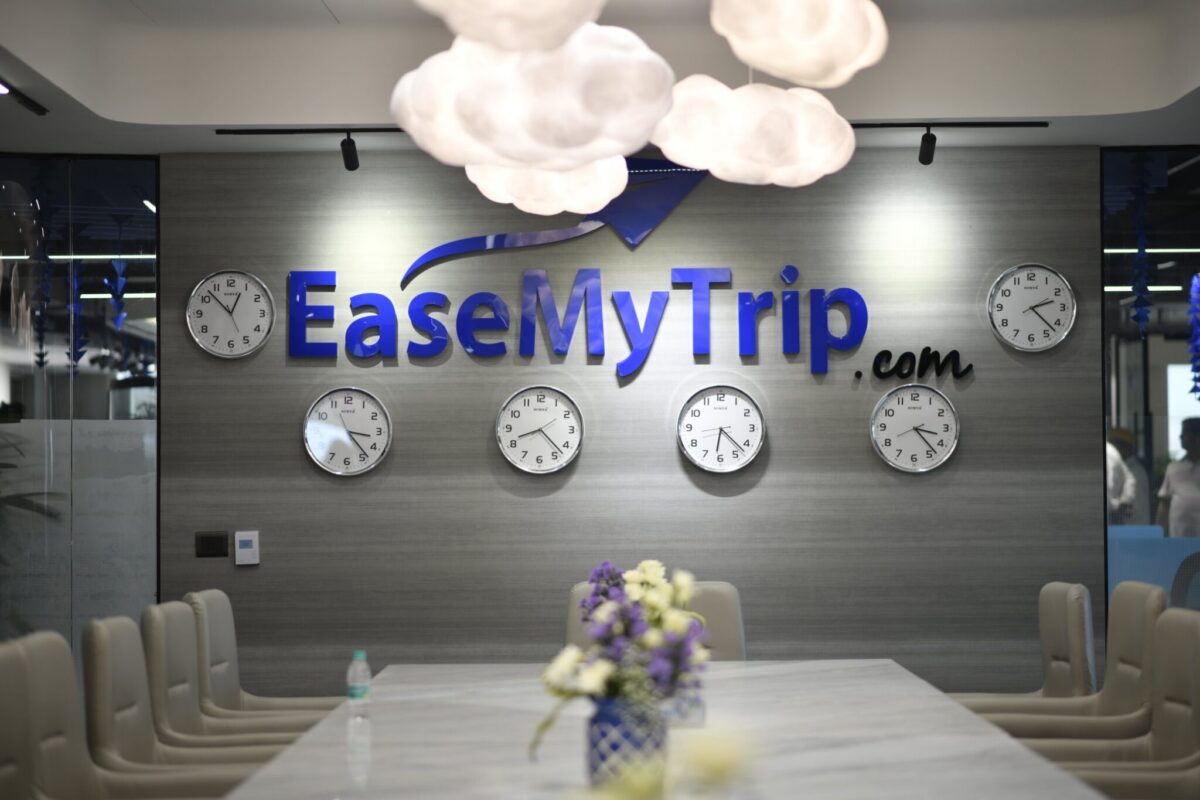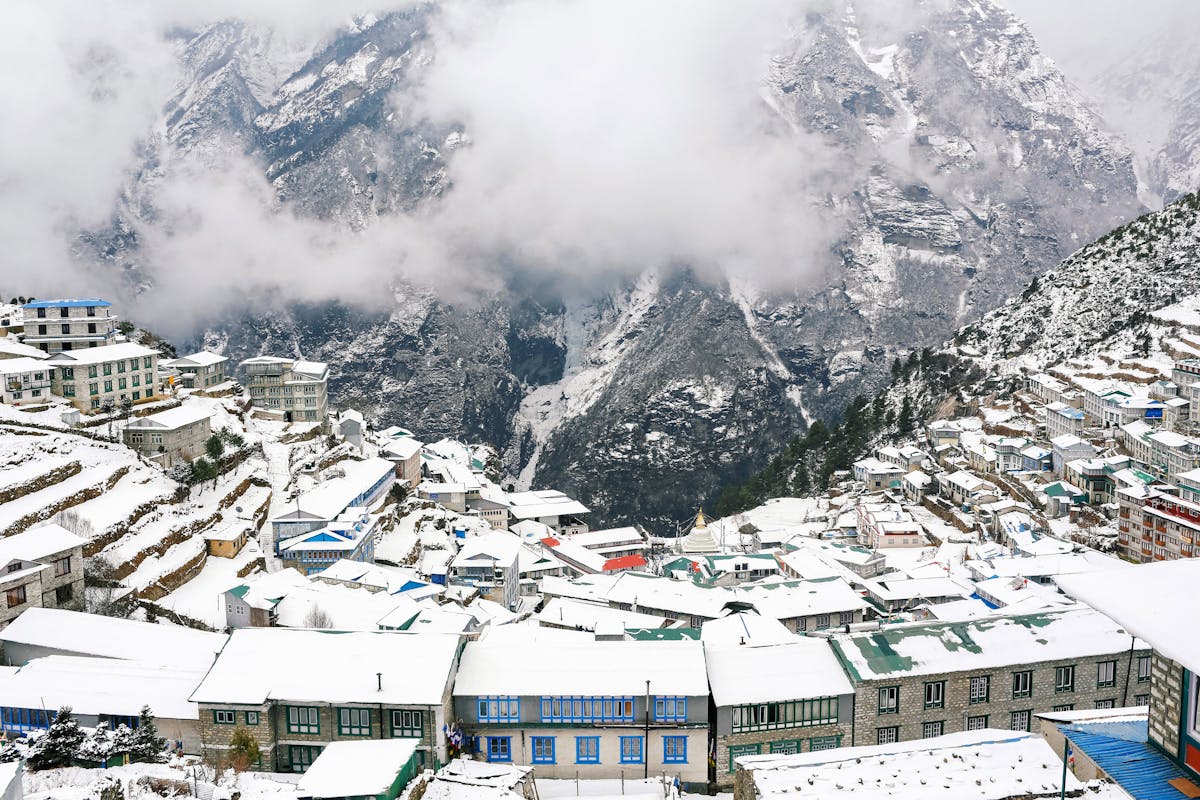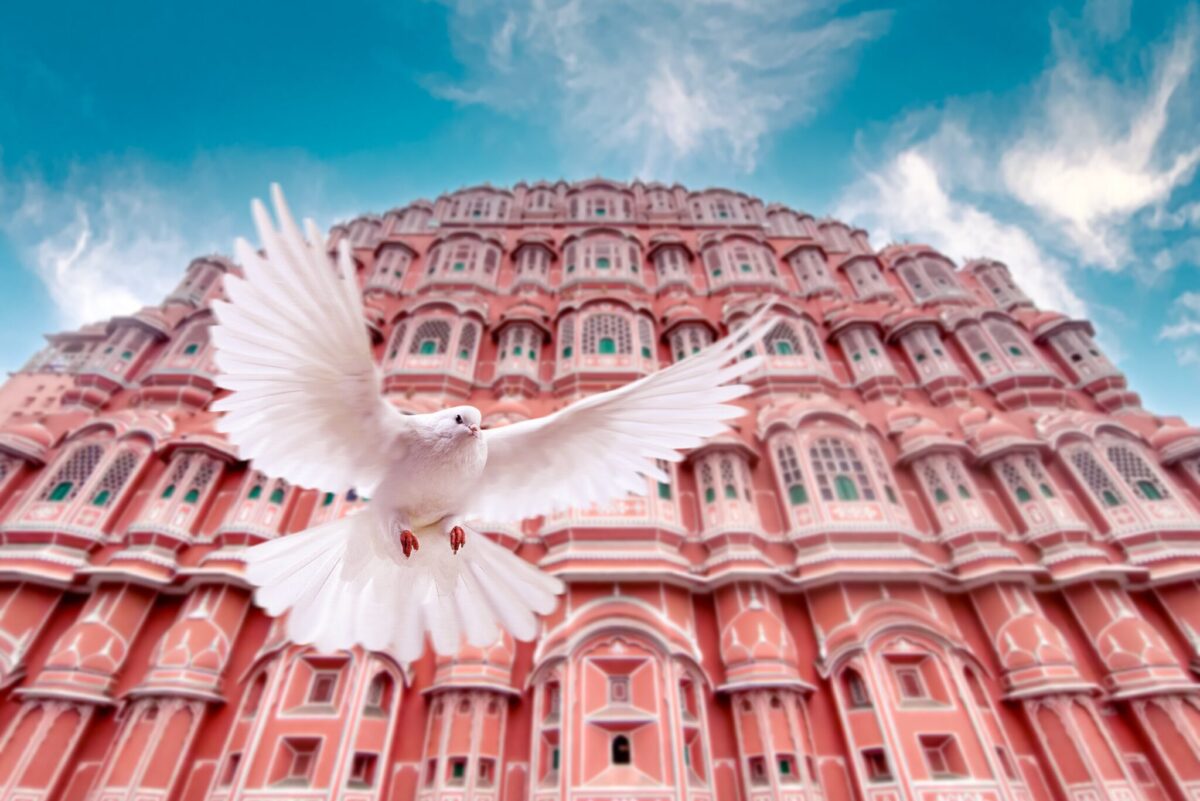The Greeks that are building the next generation of tourism businesses
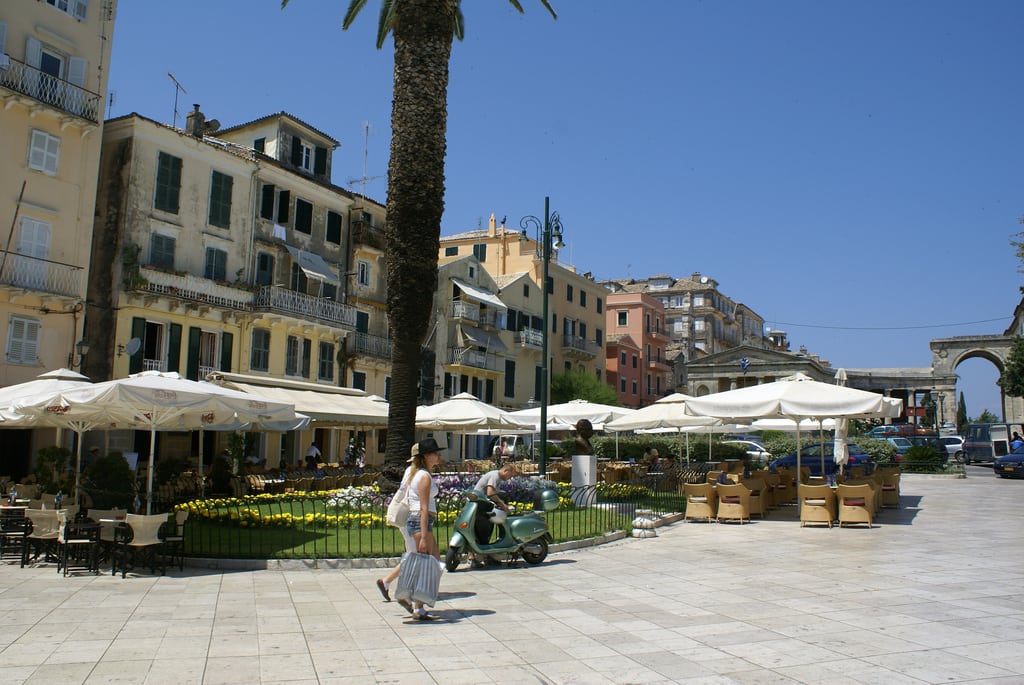
Skift Take
Recession is regarded as the worst time to start a business, but austerity is actually inspiring some Greeks to launch tourism initiatives – going against accepted business wisdom.
Residents of the islands have a reputation for being adept multi-taskers – working as tourism operators, agriculturalists, builders and service sector workers according to the season. Here in particular some are seizing on the crisis as an opportunity to make dramatic career changes; launch ventures that might never have been attempted before; and, just possibly, break the old model of passive mass-market package tourism. Here are some examples
What’s the best thing to do for Corfu? Go shopping
Alex and Christina Christou left the northern city of Thessaloniki in 2006 for the island of Corfu, and moved to Alex’s birthplace, Arillas, on its north-east coast, in 2009. “We saw the crisis coming and were looking for a safe place,” says Alex. A chemistry graduate from Utrecht University in the Netherlands, Alex had been working in IT when they decided on the move, to start both a family and a web design company. “We decided that we could be self-sufficient here,” he says. “I had friends in Corfu, and we believed that we could make a difference.”
Co-opting web boffin Christos Semertzidis, they launched Green Corfu, an online network, in 2010, with a coalition of friends from established new-age centres and newer start-ups. The network was intended to promote alternative tourism in Corfu.
Members now include an organic farm and holiday retreat in the wilds of the Korission lagoon wetlands in the south, and a microbrewery that won a commission to produce a Corfiot beer for the London Olympics.
While Corfu was one of the first Greek destinations to welcome mass tourism in the 1960s, parts of the island have been in decline since the early 1990s. The upmarket resorts of the north-east coast have suffered least, but much of the island is in desperate need of a new strategy.
The Christous and their Green Corfu cohort offer all the activities that fall under the catch-all term of “alternative tourism” – sailing and watersports, hiking, cycling, therapy and meditation holidays – as well as organising conferences on sustainability for local businesses and promoting Corfiot products. These include wines, handicrafts, gourmet foodstuffs and olive oil.
“More people have harvested their olives this year,” says Alex, “rather than sitting on their backsides.”
Green Corfu is persuading restaurants and bars to buy local, “rather than buying our lemons from China”. As their slogan says, it starts with a village.
“The first thing you can do is go shopping,” Alex says. “We can turn a small village into something different. I see it already happening in Arillas, and it’s not just us. If we get more visitors, I think the other resorts will follow.”
• Green Corfu promotes alternative holidays on the island. EasyJet flies to Corfu from Manchester, Bristol, Gatwick and Luton
Delving into volcanology and ‘geotourism’ on Milos
When Antonis Mallis abandoned a well-paid management job with an international insurance company in Athens and moved to the isolated southern island of Milos in 2011, the decision was largely a personal one.
Milos was his father’s birthplace and the family’s holiday destination since his childhood, and here he launched a travel company .
“It was a quality of life choice,” he says, although a choice taken during one of the bleakest periods for the Greek economy in more than 100 years. “It was really difficult. I had my second child on the way, and my friends were saying, ‘Why are you taking this gamble?’ But my wife was very supportive.”
With a BSc in electrical engineering from Athens and a MSc and MBA from Leicester, he says his philosophy is to see opportunities where others see a problems.
Mallis saw what he thought was a gap in the market – for a “one-stop” agency offering flights, accommodation and activities on Milos. He formed Travel Me To Milos as a company, with his brother Giorgos and cousin Nikos.
One of the pillars of their new enterprise is geotourism, which he thought was an under-promoted attraction on Milos. This striking volcanic island has a wealth of geological wonders: spectacular cliff formations, smoking fumaroles and ancient thermal baths now under renovation. Mallis also has some unusual allies, including S&B Industrial Minerals, a Greek multinational, whose mining operations are said to keep unemployment on the island close to zero. Next month, S&B will launch the Miloterranean Geo Experience, which isn’t a theme park but a “brand” under which independent businesses on Milos, and the island’s mining museum, can promote its rocky charms. For S&B, the venture means positive publicity for its activities on Milos, which have encountered resistance in the past, while it brings islanders an opportunity to promote tourism. The “Miloterranean” logo is already appearing on other Milos websites.
Like many Greek tourism entrepreneurs of his generation, Mallis now regularly works the aisles of international travel fairs, and an encounter at the International Tourism Bourse in Berlin earlier this month connected Milos into what is said to be a renaissance in sailing around the Greek islands, which is forecast to make up a large proportion of the island’s tourism economy in the coming years. This summer, Travel Me To Milos will be offering multi-island cruises between Milos and the nearby islands of Mykonos and Santorini. Mallis foresees a new wave of “alternative tourists” to Milos – sailors, hikers, kayakers, divers, canyoners and armchair volcanologists – who “respect the environment and local cultures”.
“We do not have ‘heavy industry’ tourism – big, all-inclusive hotels, wristbands, production-line food and sightseeing. This, along with its unique natural beauty, makes Milos special and this is what we need to preserve,” he says. Word-of-mouth and walk-in trade since the office opened last June convince him they’re on the right track.
• Miloterranean Geo Experience offers geothermic tours of Milos. Fly to Athens, then take the ferry from the port of Pireus
Amorgos: a Greek island for all seasons
Collaborations between islanders and tech-savvy visitors are key to many new tourism projects, not least on Amorgos, where the online Amorgos Island Magazine was launched two years ago. This laid-back Cycladean island is revered by some because it was the key location in Luc Besson’s mystic diving movie The Big Blue. On his first visit in 2010, Erwin Werdenigg, a teched-up Viennese ski and beach-bum met two residents who shared his online vision of promoting Amorgos’ sustainable tourism, conservation and environmental projects, plus fun stuff such as geo-caching expeditions. They were Dimitris Sinodinos, a dive centre owner, and hotelier Mihalis Roussos.
One Besson-based idea was to cut the traditional new year vasilopita cake and sup champagne underwater, as in a scene from the film.
Sinodinos, formerly a member of the Greek Navy’s special operations unit, launched Amorgos Diving Centre in 2007, a dream since childhood, when he watched Jean Reno acting in scenes during the shooting of Besson’s film. Sinodinos added a new dive shop in 2012. “Despite the financial crisis, people’s interest in diving, climbing and walking remains undiminished.
“These alternative tourists visit Amorgos all year round, not only in the summer. They come because they want to discover and enjoy our island. They love nature and they respect us and our island.”
Roussos is also building himself another small hotel, bucking the economic trend. He pitched into the Amorgos Island Magazine project and paid for equipment, including a webcam, all run by Werdenigg in Vienna. Echoing a sentiment expressed elsewhere in the islands, Roussos says that neither the government nor tourism authorities have been able to help the islands during the crisis: “We felt left alone and had to look for affordable and effective solutions ourselves.”
While many still pin their hopes on the big white bird of package tourism bringing visitors, Roussos says that the crisis has forced him and others to rethink their ideas, using alternative tourism to extend the season, with Erwin’s digital marketing knowhow providing a cheap way to promote the “Big-Blue Island” year-round.
“On Amorgos,” says Roussos, “most people are quite sceptical about the internet, but the younger generation understands what we do. I’m sure other Greek islands can follow ideas like ours.”
• Amorgos Island Magazine is a portal for tourism on the island. Fly to Athens, then take the ferry from the port of Piraeus
Such island projects may be small but they are proliferating, alongside older alternative enterprises such as the Milia retreat on Crete. The island of Lefkada, south of Corfu, has a new alternative “Slow Guide to Lefkada”; Kefalonia has a young and feisty year-round agritourism venture called Proper Kefalonia Travel; Kimolos is involving visitors in the revival of crafts such as bakery and basketry; Sifnos has launched cultural programmes and environmental projects aimed at tourists; Skopelos has vastly expanded its network of kalderimi paths to open its primeval forest interior to walkers. As they spread, they should put island tourism back where it belongs: in the hands of the islanders.
Trekking Hellas: making the most of Arcadia’s mountains
Arcadia has a certain reputation to maintain. You would like to think that the original land of the bucolic idyll wouldn’t be touched by such worldly concerns as Greece’s economic troubles.
The truth, of course, is a little more complicated. In the central Peloponnese, and only a couple of hours’ drive south-west of Athens, the mountains of Arcadia have enjoyed a resurgence over the past few years.
Once something of a backwater, the stunning landscapes, with river gorges set beneath Byzantine monasteries clinging to cliffsides, were rediscovered in the first decade of this century by the Greeks, along with a few intrepid foreigners who ventured beyond the beaches of the coast. Life at eagle height has its benefits, especially in the heat of the summer, and the mountains hold their own delights, including an abundance of herbs such as thyme, oregano and rosemary, as well as honey that cannot be rivalled.
Trekking Hellas is a Greek company founded to celebrate the natural environment of this remarkable country. While it operates all over the country, each area is run as a separate business. The Arcadian crew are a diverse bunch: the core are river and mountain guides, but they also include chefs, children’s camp staff, drivers and various other support crew. Most are well-educated, but they’ve all made a conscious decision to move away from the corporate world of Athens.
Trifonas Kolintzas, the head of the Arcadia operation, acknowledges this. “It’s a hard choice to leave the city and come to the country,” he says.
This choice has been made even starker by the economic meltdown of the past few years. Greek unemployment is currently around 25%, but among the under-25s it is closer to 60%. Many of the staff who work at Trekking Hellas in Arcadia could have made good careers abroad, a choice made by many of their contemporaries, but they have decided to commit to the country and landscapes they love.
Wages are not high, and would be impossible to live on back in Athens, but in rural Arcadia they can get by. When asked why they are prepared to make this sacrifice, rather than pursue lucrative options in other countries, Kolintzas’s only response is: “It’s Greece.”
The business is surviving, but only by cutting the cost of the activities they offer as much as they possibly can. When asked if he has had to cut back on staff, Kolintzas replies that while people have left, “there are always new people coming to keep our spirit alive”.
A day spent in the Arcadian mountains is more than enough to see what this spirit involves, and to forget bailouts and currency meltdowns for a while. The Loussios river was where the infant Zeus was bathed. It tumbles through a gorge once filled with watermills that powered the Greek struggle for independence from the Turks (they made gunpowder among other things). On the cliffs above, Orthodox monks still ring the bells in monasteries that overhang the river.
Kolintzas and his team offer hiking and white-water rafting, as well as more relaxed pursuits such as learning the secrets of the delicious local cooking. Most importantly, if you use their services, you know that your money is going directly into the community.
The lowering of income levels means fewer Greeks are booking trips with the company, but Kolintzas has noticed an increase in visitors from abroad. By coming they will help the local economy, he says, as well as see “magnificent places”. What better way to maintain the Arcadian idyll?
• For more information on Trekking Hellas, see trekking.gr or call +30 210 331 0323. A day’s rafting on the Loussios river costs €50pp. Call +30 279 102 5978. EasyJet flies to Kalamata, two hours’ drive from Arcadia, from Gatwick, and Athens, also two hours’ drive away, from Edinburgh, Manchester and Gatwick (easyjet.com).
Doing it for themselves in the Mani peninsula
The inhabitants of the Mani peninsula, the “middle finger” of the Peloponnese, Greece’s southern mainland, have long been known for their independence and self-reliance. When the Greeks rose up against the Turks in 1821, the fighting started in the Mani, where leaders such as Petrobey Mavromichalis (Black Michael) rejected the usual Greek cry of “Freedom or Death!” in favour of “Victory or Death!”. The Maniots were already free.
This wild and independent spirit survived the crushing poverty that was the Mani’s fate for much of the 20th century – and especially lately – and is typified by Gaia, a local volunteer organisation that does everything from fighting wildfires to cleaning the area’s golden beaches before each year’s tourist season begins.
The Mani’s renaissance began in the 1990s, when visitors tired of the over-commercialisation of the islands started to explore the mainland. Kardamyli, in the outer, northern Mani had long been a favourite of more bohemian travellers (the writer Patrick Leigh Fermor built a house there in the 1960s), but what attracted the holiday companies was the sandy beaches of Stoupa, just to the south. Development was low-key and careful, though. Families that owned property by the beaches soon adapted to new businesses. One such is Patriko, a cafe-bar built in a well-restored stone house on Stoupa’s beach. Its lively courtyard, filled with English, Dutch and Greek holidaymakers for much of the year, hides a more industrious secret, however – for behind the scenes, Patriko is the hub of Gaia.
Gaia began back in 2000, but really came into its own after the financial crisis hit in 2008. Out-of-the-way places such as Kardamyli and Stoupa seemed to be the first to have their services cut back, and even in a good year are still an hour’s drive from resources such as hospitals and firefighters. The volunteers of Gaia run two fire engines, co-ordinated by radio from the back room of Patriko.
While wildfires remain the most obvious threat to the natural environment of the Mani, Gaia turns its attention to multiple other tasks. Many of its volunteers also work in the tourism industry, and have realised that one of the big draws of the area is its natural beauty. If this is to endure, someone has to take responsibility for it, and in these troubled economic times it seems that the local community has to step up.
Fortunately the community spirit in this rural area of Greece remains strong. Christina Constantios, the owner of Patriko and a leading light of Gaia, says she could not have continued without the support of her family and the wider neighbourhood. Her daughter now keeps the business running, giving her time to run the charity, while local support from Greeks and the foreigners who have made the Mani their home, is vital. In 2012, apart from firefighting duties, Gaia volunteers were involved in planting trees, clearing hiking trails, repairing storm damage, responding to accidents and emergencies and, of course, keeping those stunning beaches in pristine condition.
When asked what visitors can do to help, Christina says that donations of money and equipment are always welcome. But her most important message is just that people should visit and enjoy this beautiful and unspoilt corner of the Mediterranean.
• For more details about Gaia see gaiamanis.weebly.com or contact Christina Constantios on +30 697 238 8217. EasyJet (easyjet.com) flies from Gatwick to Kalamata, an hour’s drive north of Kardamyi and Stoupa
A taste of success with regional food specialities
Greece may be plagued by financial woes but it is also in the middle of a culinary renaissance, and this has wide-ranging ramifications for travellers. In the past three years, the country has experienced an explosion in food tourism – proof, if ever needed, that in recessions people still eat. Thanks almost solely to private initiative, olive harvesting, cheese-making, wine-tasting and culinary tours have taken off as Greeks look for ways out of the financial crisis.
“The culinary scene has been influenced by the crisis as many Greeks have retreated from global culinary trends to the comfort of Greek cooking,” says Despina Trivolis, who runs the Athens branch of the global network Culinary Backstreets .
“We are already getting a lot of interest, especially from independent travellers and culinary travellers,” she said of the company’s decision to launch walks around Athens in April. “There is a huge rise in culinary tourism around the globe. There seem to be a lot of independent foodie travellers who want to eat like Greeks.”
Even before Greece’s debt drama, the nation had begun to rediscover the benefits of regional cuisine. And that curiosity has translated, increasingly, into growing numbers rediscovering their roots as a great rural migration has also got under way. Overnight, the country has witnessed a surge in exports of everything from olive oil to honey and feta cheese.
“There is definitely a lot of interest from a younger generation who are all keen on investing in Greek culinary products and services, be it trying to export their family’s olive oil abroad or learning the basics of organic farming for their family’s unused plots,” says Trivolis.
Typical of the generation that has been skilled and schooled abroad, Trivolis is keen to show an Athens far removed from the cliches appended to Greece since the arrival of mass tourism in the 1950s.
Since the crisis began, Greek products have become must-buys, with supermarkets highlighting home-grown fruit, vegetables and other food in their advertising. In Athens, there has also been a surge in wine bars with cellars that are exclusively Greek, such as Heteroclito and Oinoscent, both near the central Syntagma Square. There are also restaurants serving regional delicacies, such as Kriti (+30 210 382 6998, Kanigos Square), which offers authentic Cretan cuisine. Culinary Backstreets has deftly decided to capitalise on the explosion.
“Our walks consist of a full day of eating and walking around the heart of Athens, the area that we like to call the stomach of the city,” says Trivolis. “They include 10 or more culinary stops but also a taste of the real contemporary Athens, a city where you can find neoclassical buildings, Bauhaus architecture and Roman ruins within the same block.”
Trivolis says the tours will stop at places such as Kostas (Pentelis 5, +30 210 322 8502) in Agias Eirinis Square, said to serve some of the best souvlaki in town; Stani (Marika Kotopouli 10, +30 210 523 3637, stani1931.gr) in Omonoia, which prides itself on its Greek yogurt; and seafood restaurant To Triantafilo tis Nostimias (Lekka 22, +30 210 322 7298, triantafilos.gr), which is hidden away close to Syntagma.
The ancient Greeks may have invented gastronomy – and, some say, wine – but Trivolis bemoans young Athenians’ tardiness in grasping the concept of culinary tourism.
“It’s insane considering the superb product that Athens can offer as a culinary destination,” she says. “We are blessed with fresh, fantastic produce … and downtown Athens has a unique urban culture.”
Luxury resorts have also joined the trend. Costa Navarino , a retreat favoured by film stars in the south-western Peloponnese, has turned to the food business, establishing its own food line, Navarino Icons, in 2011. The resort offers cooking classes with local women sharing authentic family recipes, and wine and olive harvesting tours.
“People are now much more interested in where their food comes from,” says Peter Poulos, a partner in Navarino Icons, whose products recently went on sale in Harrods.
“Harvesting olives has been hugely popular. At a time when more and more want 100% traceability with products, we have found that visitors are delighted to see how the olives are harvested off the tree, and then pressed and bottled without preservatives,” he added.
Cooking schools have also proliferated, popping up on islands as far flung as Ikaria, where celebrated Greek American chef Diane Kochilas runs hugely successful classes. Fishing schools, farm stays and hostel wineries have also mushroomed.
“The country is on fire,” says Poulos, a prominent Greek-American fundraiser. “If you are smart and motivated there is enormous opportunity here. The private sector is stepping up to the plate and doing what the state, the Greek tourism board for example, should have done long ago to promote quality tourism in Greece.”
• The Culinary Backstreets tours begin in April, and will cost €100 per person, with a maximum of six people on each tour. The stops will vary according to the season and weather. Cookery courses run by Diane Kochilas (dianekochilas.com) on Ikaria last a full week and cost £1,620, excluding airfare. Thomson flies to Samos from Gatwick (thomson.co.uk), from where a daily ferry runs to Ikaria (2½ hours). Ferries to Ikaria run from the Athenian port of Piraeus
![]()

